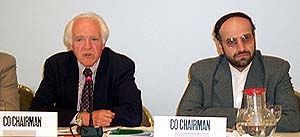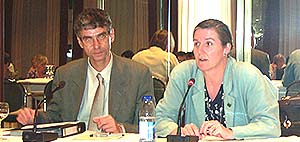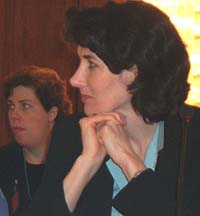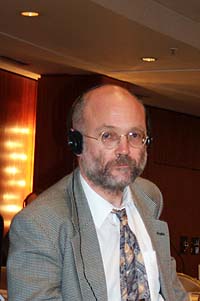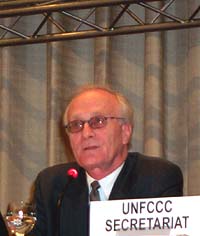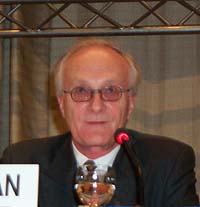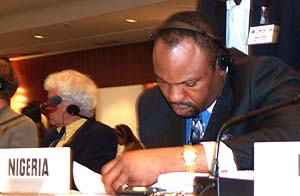|
Twelfth
Session of the Subsidiary Bodies of the UNFCCC
|
|||
|
|
||||
|
|
Thursday 15 June : The Subsidiary Body for Scientific and Technological Advice (SBSTA) met in the afternoon to adopt draft conclusions relating to: guidelines under Protocol Articles 5 (methodological issues), 7 (communication of information) and 8 (review of information); good practice guidance and uncertainty management in national greenhouse gas inventories; development and transfer of technologies; and land use, land-use change and forestry (LULUCF). The Joint Working Group on Compliance (JWG) adopted the report on its work during SB-12. Contact groups met throughout the day to conclude discussions on text relating to: mechanisms; Protocol Articles 5,7 and 8; LULUCF; and adverse effects. Informal consultations were held on capacity building and policies and measures. |
|
||||||||||
|
Interview with Alain Richer (Canada) on Compliance :
In the corridors Some participants have said they will be watching with interest the upcoming meeting of the EU Council of Ministers for clearer indications of the Union's negotiating positions on some of the key issues raised at SB-12. Several observers have expressed frustration at the EU's performance during the SB-12 discussions, noting an apparent setback on policies and measures and a lack of coherence, which contrasts with that of the Umbrella Group. Others have suggested that any perceived loss of ground at this stage in the negotiating process is overstated, and that a verdict on the Union's performance is premature prior to the Ministerial meeting, which will take important decisions such as those on sinks and nuclear power. |
|
|
|
| © 2000, IISD. All rights reserved. |
|


